GREEN SPACES ACTIVIST
 Marco Kusumawijaya
Marco Kusumawijaya
Architect/Urbanist, Urba Corner
Chair, Jakarta Arts Council | Indonesia
An active defender of Indonesia’s urban public spaces and well-known for his cause, architect and urban planner Marco Kusumawijaya believes “in citizenship and voluntary changes”.
“Citizens’ initiatives are key to effect rooted, sustainable changes, and are the basic strength of a nation.”
Thus, it is no surprise that Kusumawijaya’s grassroots projects targeted at changing Indonesia’s built environment for the better are powered by active citizen action and public participation.
“Imagining Jakarta” is a collaborative project that this current chair of the Jakarta Arts Council has founded in 2007. It is an effort that brings together a group of artists, architects and urban planners seeking alternative presentations of the city’s public realm through the collective’s creative work—encouraging citizen action in rethinking the planning of the public domain in urban Jakarta.
Its intentions are also clearly stated on its blog site (http://imaginingjakarta.wordpress.com): “Imagining Jakarta tries to present into the public sphere personal imaginations about the collective hopes for Jakarta. Imagining Jakarta offers an alternative method to experience Jakarta; one that not only serves as a source of ideas, but also as a space for interdisciplinary dialogues, among writers, artists—graphic designers, photographer, sculptors—and architects, all of them are from the younger generation. Imagining Jakarta believes in the programmatic density (and is against the mere volumetric cramming that ignore diversity), wishes Jakarta to be a ‘city of life’ (and is against the negative power that turns her into a mere ‘city of work’), hopes for her spaces to become creative spaces, considers mobility as social, cultural, and economic rights, and aims for the environmental sustainability as a goal.” The green map movement in Indonesia, founded by Kusumawijaya in 2001 after he published the first Jakarta Green Map, is also driven by the public, the common people. Green maps point out a community’s natural, cultural and sustainable features such as open areas and green spaces to promote sustainable living, details that are not necessarily marked out in normal maps. For instance, by identifying a previously unknown green trail, it could encourage the community to seek out alternative ways to get from point A to point B. These maps are drawn up based on what the volunteers in each community mark out. Besides publishing three more Jakarta green maps, he has also helped other cities across Indonesia to be green-mapped.
The green map movement in Indonesia, founded by Kusumawijaya in 2001 after he published the first Jakarta Green Map, is also driven by the public, the common people. Green maps point out a community’s natural, cultural and sustainable features such as open areas and green spaces to promote sustainable living, details that are not necessarily marked out in normal maps. For instance, by identifying a previously unknown green trail, it could encourage the community to seek out alternative ways to get from point A to point B. These maps are drawn up based on what the volunteers in each community mark out. Besides publishing three more Jakarta green maps, he has also helped other cities across Indonesia to be green-mapped.
In addition to Kusumawijaya’s active involvement on the ground, his 25-year career has also seen him conducting talks and lecturing widely on the subjects of environmentalism and green building; writing books on urban issues; and participating in policy and consultancy work with governments, national and international agencies. He has also worked with the Urban Poor Consortium (UPC) and Urban Poor Linkage (UPLINK) Indonesia to reconstruct villages and rebuild lives in Banda Aceh following the tsunami disaster in 2004.
His unfaltering commitment to sustainable development and urbanism in both professional and personal capacities is likely motivated by his personal mantra to “live in a better city, with everybody else”.
Kusumawijaya hopes to create “better, just and sustainable cities for everybody”, and to do that, change must begin now, and quickly.
“Climate change is present and immediate. Rapid and massive changes are urgently required, at both habitat and habitus level. These changes can only be sustainable if people understand them and take over its ownership.”
Although he foresees there is still a lot to do—and which must be done with a great sense of urgency—on the road to a greener Indonesia, Kusumawijaya remains optimistic as more people are becoming aware through greater discourse in many circles.
“I think we just need to get organised and create spaces for exchanges, build up social capital, and generate know-how among the people to increase the scale and speed of change.”
© Copyright 2009 FuturArc. All rights reserved. Reproduction in whole or in part without permission is prohibited.



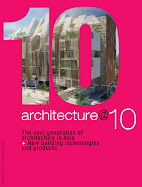
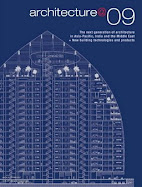
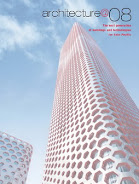
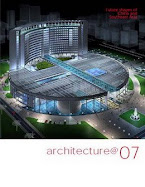


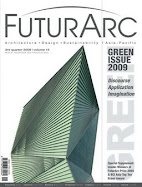



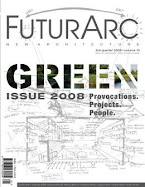








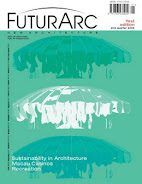



1 comment:
go green
Post a Comment